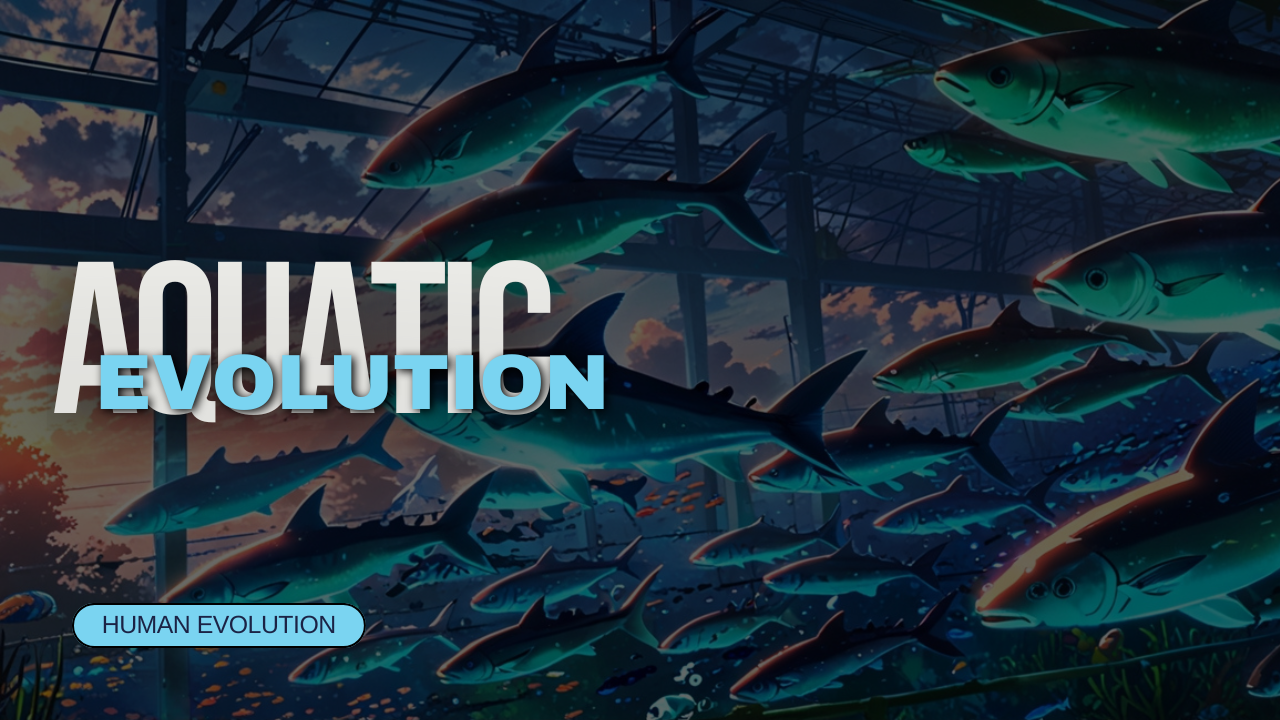What If Humans Evolve to Breathe Underwater?
What If Humans Evolve to Breathe Underwater?
Introduction
Picture this: no oxygen tanks, no snorkels, no scuba gear, just you, diving into the ocean, taking a deep breath, and exhaling bubbles like a dolphin. The idea of humans evolving to breathe underwater feels like science fiction, but evolution is full of surprises. After all, whales and dolphins once walked on land before returning to the sea. Could our species one day reverse that path, becoming part of the ocean instead of just visitors?
This question isn’t just fantasy, it has profound implications for biology, survival, and the future of humanity on an increasingly water-filled planet.
How Could Humans Breathe Underwater?
1. Gills Through Evolution
If humans developed gill-like structures (similar to fish), we could filter oxygen directly from water. It would mean a radical shift in anatomy: slits near the neck, blood vessels specialized for gas exchange, and possibly hybrid breathing, utilizing both air and water.
2. Genetic Engineering
Instead of waiting millions of years, science might accelerate evolution. CRISPR technology or synthetic biology could one day modify humans to use gills or engineered “oxygen-extracting organs.”
3. Symbiotic Adaptation
Perhaps we wouldn’t evolve gills ourselves, but instead live in partnership with engineered microbes or artificial implants that process dissolved oxygen in water.
4. Nanotechnology
Tiny machines inside our bodies could extract oxygen molecules from water, making us bio-mechanical hybrids perfectly at home underwater.




How Society Would Change
Medicine and Biology
- Doctors would need new knowledge of aquatic physiology.
- New organs (gills) would change how diseases spread and how treatments are delivered.
- Nutrition might shift, with seafood-based diets becoming dominant.
Cities and Architecture
- Coastal cities could expand into underwater colonies.
- Skyscrapers might grow downward, with glass domes protecting underwater neighborhoods.
- Transportation would include swimming highways or bio-ships powered by human swimmers.
Law and Politics
- Who owns the oceans if humans can live there?
- Nations might fight over seafloor resources, from oil to rare minerals.
- Laws of the sea would need rewriting for permanent underwater societies.
Culture and Religion
- Myths of mermaids, Poseidon, and water deities would gain new significance.
- Art and storytelling would bloom with aquatic themes.
- Entire cultures could develop around the rhythms of tides and deep-sea life.
The Dangers of an Underwater Humanity
- Pressure and Depth: Without adaptations, our bodies could still suffer under crushing ocean pressure.
- Predators: Sharks, giant squid, or unknown deep-sea creatures might become new rivals.
- Resource Scarcity: Food sources might not keep pace with population growth.
- Pollution: Living underwater means direct exposure to human-made toxins, plastics, and oil spills.
The Opportunities
- Exploration: We could finally explore the 80% of oceans still unmapped.
- Survival: Rising sea levels would be less threatening if we could live in the water itself.
- New Resources: Access to deep-sea minerals, energy, and ecosystems could fuel progress.
- Cultural Renaissance: Humanity would not only be a species of the land, but of the sea.
FAQs
Q: Could humans really evolve to breathe underwater?
Evolutionarily, yes, but it would take millions of years. With genetic engineering, it could be possible much sooner.
Q: Would we still need to breathe air?
Most likely. Like amphibians, we could become dual-breathers, able to survive both on land and underwater.
Q: How would this affect human society?
It would reshape everything from cities to economies. Wars, trade, and even human identity would expand into the ocean.
Key Points
- Humans breathing underwater could happen through evolution, genetic engineering, or advanced tech.
- Society would shift toward aquatic living, with the emergence of new cities, laws, and cultures.
- Risks include predators, pollution, and resource conflicts.
- Benefits include exploration, survival, and a deeper connection to our planet.
My Thoughts
If humans ever breathe underwater, it won’t just be about survival; it will be about transformation. We’ve always been explorers, whether of deserts, skies, or space. The ocean is Earth’s last frontier, and becoming part of it could change our very definition of being human.
But I also think it comes with danger: the ocean is not forgiving. We’d need to treat it with far more respect than we do today, or evolution’s gift could quickly turn into our downfall.
Still, the thought of entire civilizations shimmering beneath the waves—part myth, part science—is one of the most thrilling “what ifs” of all.
🔗 Related Articles from EdgyThoughts.com
🌐 External Resource
Read more about Human Evolution and Adaptations:
Wikipedia – Human Evolution







One Comment
Comments are closed.